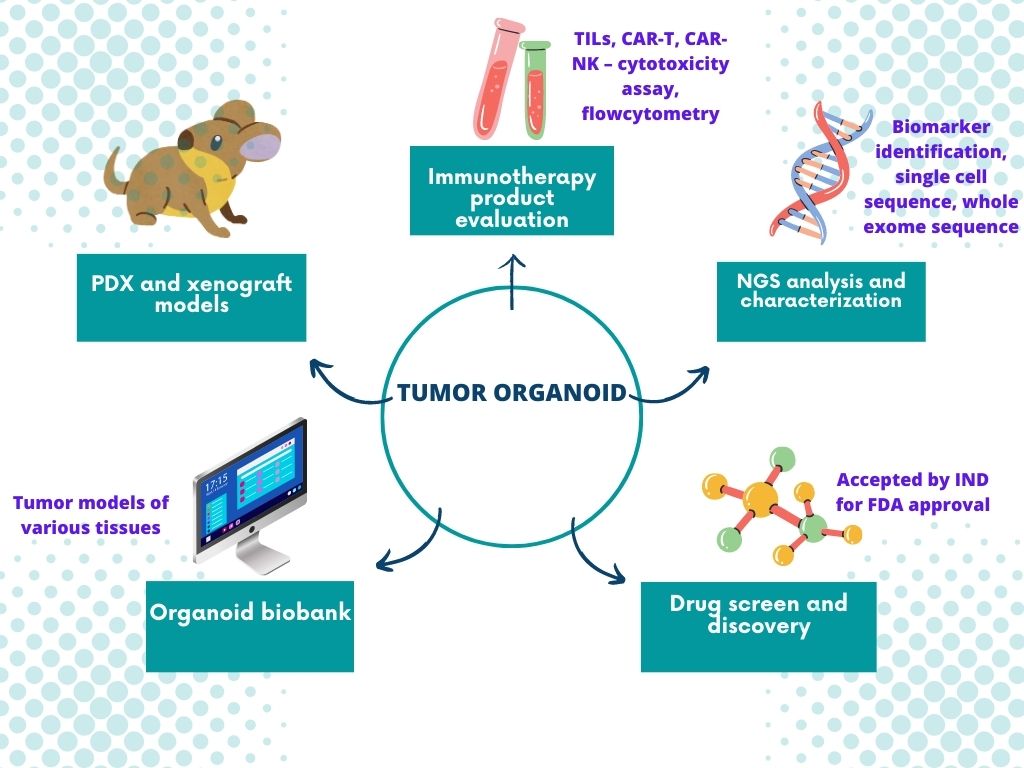Organoids are miniature, three-dimensional structures that mimic the structure and function of an organ in the human body. They are usually derived from stem cells and grown in a lab using specialized culture conditions.

Organoids have several applications in the field of biology and medicine, including:
- Drug discovery and testing: Organoids can be used to test the effectiveness and toxicity of drugs, which can help researchers determine the best treatment options for patients.
- Studying disease: Organoids can be used to study diseases such as cancer and other genetic disorders. Researchers can create organoids that contain mutations that cause these diseases and study how the mutations affect the organoids to gain insights into the underlying biology of the disease.
- Personalized medicine: Organoids can be used to develop personalized treatments for patients. For example, a patient’s organoid can be used to test different drug treatments to see which one works best for that specific patient.
- Tissue engineering: Organoids have the potential to be used as a source of replacement tissues for transplantation. This can help to address the shortage of donor organs for transplantation.
Overall, organoids have the potential to revolutionize the field of biology and medicine by providing researchers and clinicians with new tools to understand and treat diseases. Bioway Tech provide comprehensive solutions to immunotherapy cell products, including curation of different tumor types, organoid production, characterization, NGS analysis, and bioassays.
